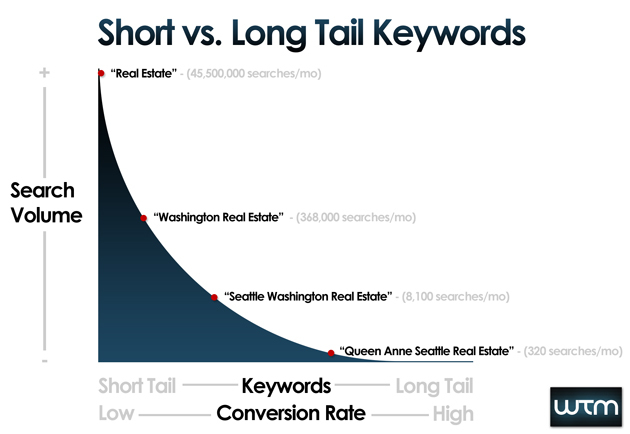Blogging is one of the best ways to drive traffic to your website, giving you boosts in many ways! You have to pick the right keywords though, so how do we pick the best keywords for blogs?
Keywords allow potential audience and visitors to search for your service or product. Choosing the right keywords is mainly influenced by how well you understand the keywords other brands and businesses use within your niche. Once you know the keywords best suited for your niche you then construct posts targeting those phrases. Once you start doing that, you broaden your chances of ranking on the search engines.
Achieving the right SEO campaign highly depends on the keyword research you do for your keyword for blogs. Once you find the right keywords, you need to incorporate them into your site in a place like the post titles, meta descriptions, and the actual copy. Here are some of the ways to choose the right keywords for blogs:
Conduct Informational Searches
Carefully consider what your purchasing funnel level will be before you select the keywords for your blog. Once you do, write the content that will reach your clients on a personal and economic level and incorporate the keywords into the post.
From the purchasing funnel that your keyword fall into, come up with a list of your buckets. For instance, you could seek the keywords best on the informational as well as the transactional searches you conduct. This will give you a map for your keyword research. This will help you ensure that your site has a balance of the content you post.
Informational searches entail common questions that most people ask within your niche. For instance, if you are looking for a real estate manager, you might want to know what you are supposed to consider when choosing one and which agent is best suited for your needs.
Using informational searches, you will be able to find the keywords for blogs that will enable you to introduce potential clients to your business or brand and help you increase your site traffic and search engine rankings.
You can use sites like Quora and Ubersuggest to find out some of the keywords for the informational searches since the suggestions and topics are entirely user-driven.
Conduct Transactional Searches
Once you have done your research and you are ready to purchase, you can go ahead and conduct transactional searches. Some tools will allow you to choose the keywords that will target this type of group searching.
Transactional searches will help you uncover the most popular keywords that most people search when they are ready to cash in on their business. This searches will allow you to input the keywords and see the key metrics like cost per click, volume and competition level. This then enables you to determine the value of each phrase and the keyword you are targeting.
Consider Long Tail Keywords

It is crucial to consider long tail keywords when you are selecting keywords to target. If you find it difficult to stay competitive in the SEO game, long tail keywords will help you out. The best thing about long tail keywords is detailed and specific search queries that go a long way in helping get the right keywords for blogs.
For example, if you are a real estate agent, your best chance is to target a phrase like “best real estate agent in your location.” When it comes to long tail keywords, they have lower search volume compared to short, broad keywords. However, they tend to have higher conversion rates and much lower competition. This is because they demonstrate a more obvious and specific search intent.
Enter a generic keyword for your blog into a search engine, preferably Google search to begin. Using the real estate example, type the phrase “ real estate agent” and wait to see Google’s autocomplete results before hitting the enter button. This will help you to see what long tail keywords people are searching for that’s related to yours.
Understand the Keywords
Now that you know how to identify the right keywords, you need to understand the types of keyword and how to use them correctly. The good news is, there are tools that can make your life easier when figuring out the right keywords.
> Keyword Research Tools that are Free <
Google makes it easy to conduct keyword research because it has free tools like Keyword Planner which is a free AdWords tool. Before using this tool, you have to set up an AdWord account. Google spits out a list of keywords you can use when you input one or more keywords or your site’s address into this tool.
It has simple metrics that help you gauge how tight the competition is around the keywords you input. It also tells you how many searches they receive on both a local and global search level. Google Keyword Planner also shows you historical information and statistics on how a list of the keywords might perform.
This tool also multiplies several lists of keywords and creates a new keyword list for you. It also helps you select budgets and competitive bids because it is a free AdWords tool.
This is also a free tool on Google. With this tool you can enter multiple keywords and filter by search history, location, and category. This tool will give you results that show you how much the people are interested in a specific keyword. It also tells you where the traffic comes from for that keyword.
Unlike other keyword research tools, Google Trends doesn’t give you static keyword volume numbers. It generates interactive and colorful graphs that you can download, play with or embed on your business site. With information like the relative popularity of a search item, it gives you compelling insight into a keyword.
The results are also much cleaner because it doesn’t include data from repeated queries from one user over a short span of time. If you want to decide between two keywords variations for your recent blog post title, you can use this tool. All you have to do is perform a comparison search on it to see which is searched more.
This tool is useful if looking for a list of long tail keywords for blogs that are related. It can also be used with the most basic version without even creating an account.
This tool uses Google Autocomplete to generate a list of the essential long-tail keywords suggestions for your blogs. Factors like how often the user’s search for a particular item determine the search terms that Google Autocomplete will suggest.
Keyword tool will help you understand what people are most interested in around your topics. However, since this tool version is free, all it does is generate other keyword suggestions in the alphabetical order. It will not tell you anything about cost-per-click or search volume.
> Keyword Research Tools You Have To Pay For <
You can opt to purchase the standard, medium, large or premium version. This tool is perfect for analyzing how a keyword is competitive and unearthing low-hanging fruit. It enables you to find the top ten rankings for the keyword when you input the keyword into the tool.
Based on the pages that will currently rank for the keyword, it will assign it the “Difficulty Score”. Then you will be able to analyze the search volume data for the keywords. You can even see the top ten results for each by pulling up the SERP.
This tools can also be used to see other brands that are ranking for specific keywords to do some keyword analysis. You can also find information on the site’s page authority and the root domain linking to their pages. If you want the data you find for your own analysis, you can export the data into a CSV.
You can buy the basic, Pro or based on Agency. Using this tool you can get over 10,000 keyword variations from a single seed term. The tool keeps the keywords results as relevant as possible, and it pulls through many supporting metrics with it.
This tool gives you the results on page one of the SERPS, including the number of results, trust score, link strength, and keyword difficulty. If you want to get a handle on your competitors, you can research their page ranking, domain age, and links using this tool. You can also use this tool to perform a word count, links, page rank, outbound links, and keyword appearances in the title, headers, and URL.
For your own analysis, you can export the data to a CSV. If you would prefer to use this tool for just a short period, you could opt for the free version. The free one does five little keyword jobs and five keyword analysis a day.
You can purchase the Lite, Standard, or Advanced Version. The tool has a Site Explorer tool that allows you to find the domain rating and URL rating for any site you put in there. It also allows you to find the number of referring domains, number of backlinks, and social metrics for Google+, Twitter, and Facebook.
You can use this tool to do a quick analysis of a particular site. You can also do a more in-depth dive if you want using the extensive index. The interface is not boring compared to other tools; it has colorful and interactive charts of things like internal and external backlinks, a number of indexed pages, and new versus the lost backlinks.
It also has a Position Explorer that allows you to find keyword opportunities where potential competitors are ranking. The part of the tool also gives you extra link metrics that will enable you to determine keyword competitiveness. The Content Explorer lets you browse through the content that is most shared for any topic of preference.
There are other tools; it’s just a matter of finding the tools that best suits your purpose.
Check The Search Volume and Difficulty

Using your tools of preference you will be able to identify the target keywords that are competitive. Use the tools to establish the search volume and the competition you to assign the keywords a difficulty level. If the difficulty level is higher, the harder it becomes to compete in the search rankings.
Start with the keywords you are already ranking and the lower-difficulty keywords. When you gain better Google results and core search traffic, you will be able to have a higher chance of ranking for higher-difficulty keywords.
Be Strategic
The last thing you need is to piss off your readers and search engines, so avoid overusing keywords. Make sure that the target keywords you use for your blogs deliver the highest SEO value while sounding very natural.
Some of the natural places to use the keywords in your posts are the title, headings, first paragraph and last paragraph of the content. In 2-3 paragraphs use the keyword only once to avoid stuffing. If you want to strengthen your authority with the search engines, incorporated related terms from LSI keyword groups.
Conclusion
Keyword research has proven to be a handy tool when it comes to improving your site’s SEO. However, you need to know that what matters the most is the value you are offering your content. All the search engines consider the quality of your content and other factors when offering up the search results.
So while you focus on choosing the right keywords for blogs, remember to focus on produce high-quality and helpful content. However, if you want to select the right keywords, you need to step into your customer’s shoes. Figure out what they would have to search to find your business.

